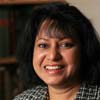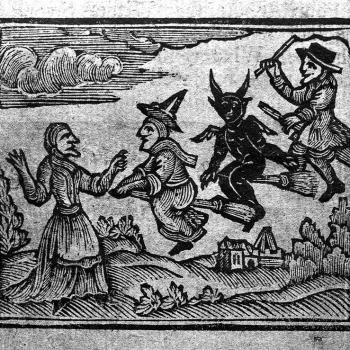 By Asma Afsaruddin
By Asma Afsaruddin
The future of Islam lies in the resolution of its fractious present. There are multiple conversations underway among Muslims today, both in the heartlands (Middle East, South- and Southeast Asia) and in the West about deeply divisive issues -- identity and cultural expression, political authority and representation, recourse to violence, globalization, gender, and inter-faith relations -- to name the most important. How these issues are debated and resolved by Muslims themselves will determine the course of Islam through much of the 21st century.
I regard these intra-Muslim dialectics to be far more consequential and more predictable than Muslim-non-Muslim engagements. The latter is always susceptible to external political events and power differentials; the former is more of an ideational and cognitive tussle among the principal agents themselves, not unaffected by the outside world of course, but still more grounded in the collective psyche and conscience of Muslims, and, importantly, in their memory of the past. As one hears frequently and portentously, "the struggle for the soul of Islam" is now being waged -- my prediction is that this struggle will continue unabated in the coming decades and will decisively shape the Muslim world.
The issues identified above do exercise most thinking Muslims, and their views on these topics cover a wide gamut -- from absolutist hard-line positions on the one end to liberal, flexible perspectives on the other, with a mélange of views in between. Take identity and cultural expression, for example -- hard-liners typically place great emphasis on outward appearance and dress (beards and headscarves, for example), raising them sometimes to fetish levels, while liberals tend to devalue such external indices of assumed "cultural authenticity." On the topic of political authority and representation, hard-liners maintain that Islam's past history contains detailed directives concerning the form and nature of "Islamic government," while liberals are inclined to stress the values that undergirded competing constructions of political authority and governance in the formative period of Islam.
Recourse to violence, especially under the rubric of jihad, is arguably the most fraught issue being feverishly debated among Muslims today. Not all absolutists are militant; however, those who are have attempted to co-opt the term jihad and annex it to their nihilistic enterprise of wreaking vengeance for past wrongs, real and assumed. With the apparent collusion of the Western media and what may frequently appear as the collective stupor of rank-and-file Muslims before the barrage of extremist propaganda, the militants seem to be largely succeeding. What many are regrettably unaware of is that liberals and "moderates" (as they are often called) are mounting a counter-attack against this hijacking of the term jihad, and this is already helping to stem the tide. In recent years, prominent and respected Muslim scholars such as Sa‘id Ramadan al-Buti of Syria, Shaikh ‘Ali Jum'a of Egypt, and Tahir al-Qadiri of Pakistan have written lengthy and powerful rebuttals of the militants' scorched-earth policy in the name of jihad that are highly noteworthy.
There is a similar sharp divergence in views on the remaining topics. While globalization is roundly denounced by hard-liners as a continuous onslaught of Western imperialism since the days of European colonialism, liberals take a more nuanced view, selectively criticizing negative economic effects on poorer nations while endorsing an emerging universalist world-view in whose crafting all, at least theoretically, take part. Gendered identities are sharply demarcated in the absolutist imagination; men and women ideally occupy different spheres, public and private respectively, with the latter sphere clearly in subjection to the former. All these ideas are then projected back into the mythic, mimetic past through artful and adroit misreading of history on their part.
Finally on the contentious issue of inter-faith relations, hard-liners are adamantly religious supremacists, relentlessly excising and downplaying, through hermeneutic sleight-of-hand, numerous commandments within Islam's foundational texts to refrain from judging the rectitude of other religious communities -- a prerogative belonging to God alone -- and to invite the faithful of all stripes to participate in a common endeavor to promote good and prevent wrong. The militants' understanding of jihad militates against such peaceful co-existence of different faith communities, except under the aegis of the rule of "true" Muslims like themselves. This understanding flies in the face of the Qur'an's depiction of the military jihad as a defensive enterprise in response to the prior aggression of the enemy, while holistic jihad as the continuous human struggle on earth to better oneself and one's surroundings is always underway. Liberals in particular stress these multiple meanings inherent in the term jihad and appeal to both religious texts and historical praxis to bolster their position.




